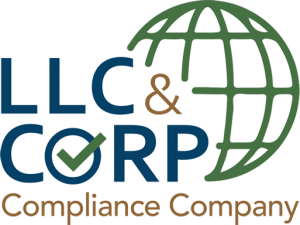
Risks of reporting BOI without legal advice
One of the most important aspects to consider within the new Corporate Transparency Act (CTA) are the risks of reporting the Beneficial Ownership Information (BOI) without proper legal advice. Even the United States Department of the Treasury within the Financial Crimes Control Network warns public accountants to be careful when preparing BOI reports, which poses a significant risk in the event that company shareholders do so by themselves or without the support of a lawyer knowledgeable on the subject.
Who is considered a declarant in BOI reports?
Section 380(g)(1) of the Reporting Rule provides that the “person” filing a BOI report may be an individual, a company, or another entity. FinCEN includes in this concept the fact that any person whom the reporting company authorizes to act on its behalf (an employee, the owner or a third-party service provider), can file a BOI report on behalf of the reporting company.
From a risk-reducing perspective, it is very important to consider that the company administrator should be the person who authorizes and files the BOI report with FinCEN with the proper advice of an attorney or legally supported organization.
Who assumes the legal responsibility for filing a BOI report?
Section 380(g)(4) states that: “if a person fails to report complete or updated beneficial ownership information to FinCEN, with respect to an entity: (i) such entity is required [by law] to report information to FinCEN, (ii) the reporting company does not report such information to FinCEN, and (iii) such person causes the failure or is a senior official of the entity at the time of the failure.”
This means that responsibility for information that was requested (but not reported or was reported with errors) falls on the senior management of the reporting company and on any person who “caused the failure.” The phrase “caused failure” can apply to a person who provides false information or refuses to provide accurate information required in the BOI report.
Additionally, when we refer to the Frequently Asked Questions published by FinCEN in what corresponds to question K.3, it clearly explains two specific points:
- Can a person who files a report on behalf of a reporting company be held liable?
Yes. A person who knowingly files a false or fraudulent beneficial ownership information report on behalf of a company may be subject to the same civil and criminal penalties as the reporting company and its senior officials - Can a beneficial owner or company applicant be held liable for refusing to provide required information to a reporting company?
Yes. As described above, an enforcement action may be brought against a person who intentionally causes a reporting company to fail to submit complete or updated beneficial ownership information to FinCEN. This would include a beneficial owner or company applicant who intentionally fails to provide required information to a reporting company.
And the consequences of completing a BOI report without qualified legal advice could cause economic damage, as FinCEN also recognizes in question K2. What penalties do individuals face for violating BOI reporting requirements? As specified in the Corporate Transparency Act, a person who intentionally violates the BOI reporting requirements may be subject to civil penalties of up to $500 for each day the violation continues. However, the amount of this civil penalty is adjusted annually for inflation. At the time of publishing this FAQ, this amount is $591.
A person who intentionally violates BOI reporting requirements may also be subject to criminal penalties of up to two years in prison and a fine of up to $10,000. Potential violations include intentionally failing to file a report of beneficial ownership information, intentionally filing false beneficial ownership information, or intentionally failing to correct or update previously reported beneficial ownership information.
Conclusion
Any natural or legal person can be a “filer” of a BOI report. Considering this, it is extremely important that the “filer” be legally advised by a certified professional or by an organization that specializes in legally advising business owners, partnerships, corporations and subsidiary companies.



